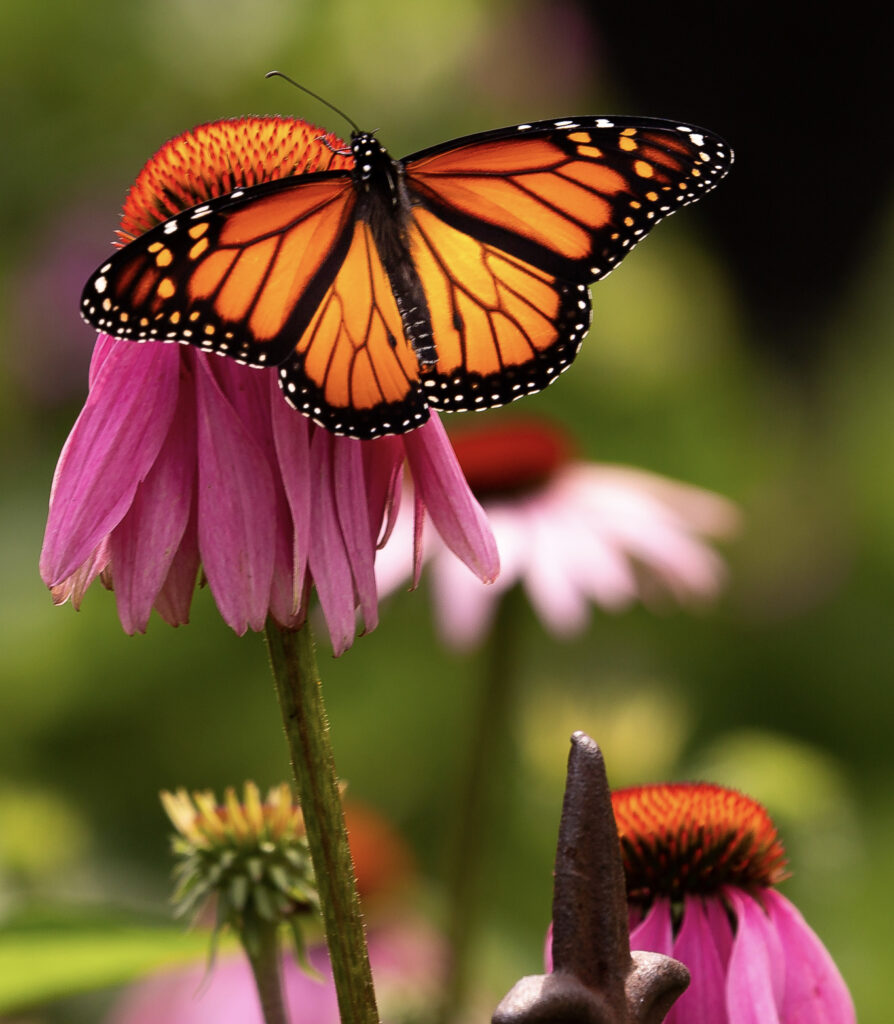MONARCH BUTTERFLIES


October 2024
The Government of Canada listed the Monarch as an endangered species under the federal Species at Risk Act (SARA) in December 2023. This provides legal protection to the Monarch on federal lands in Canada. This means that on federal lands in Canada, it is automatically prohibited to:
• kill, harm, harass, capture, or take an individual (an individual includes any developmental stage of the Monarch — eggs, caterpillars, chrysalises, and adults — whether living or dead)
•possess, collect, buy, sell, or trade an individual or any part or derivative of such individual
•damage or destroy the residence of one or more individuals.
The Monarch is one of the best-known butterfly species around the world. In Canada, it can be found in all provinces except Newfoundland and Labrador. The Monarch relies on milkweed plants for breeding and is found where milkweed grows.
Monarch eggs are cream or white-coloured with ridges running from top to bottom. They are the size of a pencil tip and are usually laid singly on the underside of milkweed leaves. As a caterpillar, the Monarch is distinctively white, yellow, and black-banded. It transforms into a large, showy butterfly with orange and black wings, bordered with white spots.
Loss of breeding habitat and sources of nectar (for example, milkweed and wildflowers) across the species’ range due to agricultural intensification.
• Insecticide use and the increased use of herbicides reducing milkweed availability.
• Climate change and extreme weather events.
In other words, it is illegal to kill, hurt, or catch a Monarch (or Monarch caterpillars, eggs or chrysalises) when you are on land owned and/or administered by the federal Government of Canada, which includes National Parks, National Wildlife Areas, military bases, First Nation reserves, and federally owned or administered land.
Other pesticides (such as the one used for the Spruce Budworm) can contribute to the decline of Monarchs and other non-pest species of plants, insects, animals, and birds. The spraying of Glyphosate herbicide on our forests is also destroying the bio-diversity and Milkweed availability on N’dakimenan. TFN Guardians have noticed the decline in Monarch Butterflies with very few sightings this year. Help do your part by planting Milkweed and express your concern about Herbicide and Pesticide use on N’dakienan.
Daniel Becker
daniel.becker@temagamifirstnation.ca

